South Kalimantan Governor Sahbirin Noor’s Corruption
South Kalimantan Governor Sahbirin Noor is suspected of receiving commissions on three projects in the e-catalog. He has not been seen since being named a suspect.

South Kalimantan Governor Sahbirin Noor is suspected of receiving commissions on three projects in the e-catalog. He has not been seen since being named a suspect.
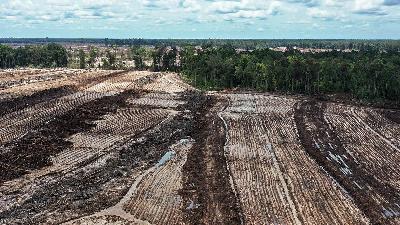
The food estate project in Central Kalimantan went into motion before relevant regulations and an environmental analysis were published. Prabowo Subianto and Moeldoko are behind companies running food estates.
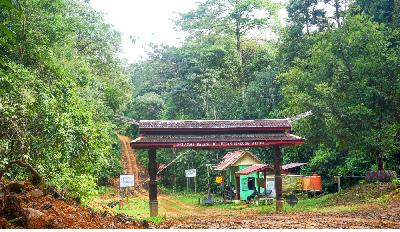
East Kalimantan’s wilderness has managed to keep the Wehea Protected Forest “hidden” amid logging and oil drilling. The 38,000-hectare forest is home to a variety of protected species, including the orangutan (Pongo pygmaeus). In the face of numerous challenges, the Wehea Dayak tribe has taken firm action to safeguard and preserve their forest and its resources, and are now working with the government, non-profit organizations and even companies. Meanwhile, the customary community also strives to maintain the natural balance by celebrating Lom Plai, a thanksgiving tradition. In celebration of World Biodiversity Day on May 22, Tempo English reports.

Meliana Christanty has documented hundreds of Kalimantan’s traditional dishes. She is also popularizing the region’s unique recipes through cooking classes and social media.

THE Central Kalimantan provincial government will soon build a bridge linking it with West Kalimantan province at Tumbang Samba village, Katingan regency, Central Kalimantan. The bridge will have a length of 450 meters over the Katingan River. "We've submitted a proposal to the central government. Construction starts next year," said Leonard B. Ampung, head of the Central Kalimantan Public Works Agency, last week.

Russia has pledged to build a refinery to process bauxite and produce alumina in West Kalimantan. "Rusal is now working very closely on the project," said Russian Ambassador to Indonesia Mikhail Galuzin at his residence in Jakarta on March 5. Rusal is the world's largest aluminum company.
In addition to the refinery, Galuzin said Russia would build generators to provide electricity. Meanwhile, he added that efforts would be made to assist an ongoing railway project East Kalimantan as Indonesia strives to improve its infrastructure and connectivity. "We are very committed and the amount of investment has come out to more than US$1 billion," he said.

Foreign researchers rang the alarm bells. "The survival of endangered species in Kalimantan is increasingly threatened," warned Matthew Struebig, biological conservation professor at the University of Kent in England. Struebig and his colleagues outlined the threat in the January 22 edition of the journal Current Biology.
Based on the researchers' findings, almost half of the animals' habitat will disappear in the coming two or three decades. In other words, one in three mammal species on the island of Borneo will lose 30 percent or more of their habitats by 2080.

A few enterprising business people in Central Kalimantan province have found a new way of touring the area's meandering rivers and dense forests. By modifiying the Dayak's traditional boat, they have created a floating hotel, which can take visitors downstream to traditional villages and observe up close the flora and fauna of pristine forests. In return, the local population earn additional income without having to cut a single tree. However, such efforts are not supported by the proper infrastructure to make the enterprise more effective. Tempo English reports from Central Kalimantan.

Kalimantan has the largest forest area in Indonesia, and the highest rate of forest destruction among the archipelago's islands. According to the NGO Save Our Borneo, 80 percent of forest destruction in Kalimantan is caused by expanding oil palm plantations. Pastor Samuel Oton Sidin of the OFM Cap decided to do something about the loss of forests on the island. He mobilized communities to replant trees in barren mountain slopes, succeeding in greening 108 hectares of land around the Tunggal mountains of West Kalimantan province. Environmentalist Galuh Sally managed to plant 1.6 million of gaharu tree seedlings in South Kalimantan. On the occasion of World Tree Day on November 21, Tempo English reports on how heroes like Father Oton and Galuh are able to motivate people to fight and save their forests.

Water is abundant in West Kalimantan, yet the province has trouble obtaining clean water supply. Some 80 percent of inhabitants rely on rainwater for drinking and cooking, which gradually ends up damaging their teeth.

Kalimantan logs continue to flow into Malaysia. Officials blame each other for the island’s deforestation.

Lighthouses will be constructed at Gosong Niger in West Kalimantan, so fishermen will no longer go astray.

In Central Kalimantan’s Tanjung Puting National Park—one of the largest conservation forests in Indonesia—millions of cubic meters of ramin (Gonystylus spp) and meranti (Shorea spp) trees are cut down, hauled out and sold illegally, costing the country more than Rp70 billion a year.
Pangkalan Bun, the capital of the West Kotawaringin Regency in Central Kalimantan, has become the most important base for the illegal business, a trade which is spreading like a contagion. It has given birth to a “local king” who has the power to make people from illegal loggers to high-ranking officials tremble with fear. His name is Abdul Rasyid, one of the members of the People’s Consultative Assembly (MPR) from the Golkar Party.
Who is Abdul Rasyid? Is it true that he is the mastermind behind the massive timber theft in Tanjung Puting? Follow TEMPO’s investigation.

The irony began on an island with plentiful mineral resources. It was noticeable in Sangatta, a small town in East Kalimantan where the earth is blackened with abundant coal. Extracted for almost a decade by PT Kaltim Prima Coal (KPC)a joint venture between two foreign giants, Britains British Petroleum and Australias Rio Tintoincome from the mineral should have been allocated to Indonesia as of 1995. However, the case of divestment of KPC shares, delayed for the last six years, keeps the wealth beyond the expectation of public welfare promotioneven amid the euphoria of political and economic decentralization. The tradition of low transparency, the popular sense of justice being victimized by local elite rivalry, the feud between central and regional institutions, high-level lobbying and the trickery of mock firms are the murky stories arising from the heat of the struggle for Sangatta coal.

Jokowi meets cabinet ministers after Prabowo’s discreet rendezvous with Megawati. The former president was scrambling to counter the fake diploma controversy.

Deputy State Secretariat Minister Bambang Eko Suhariyanto explains the revision of the Indonesian Military Law, which is perceived as reinstating the military’s dual function.

The Constitutional Court decided that the election for Regent of Serang must be rerun. After being proven that he intervened, Villages Minister Yandri Susanto should be dismissed.
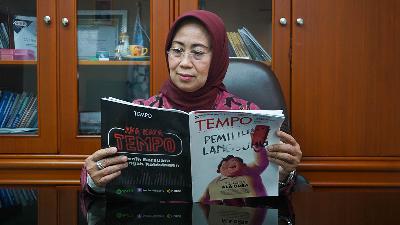
Press Council Chair Ninik Rahayu on the polemics surrounding the National Press Day and media freedom under the Prabowo government.
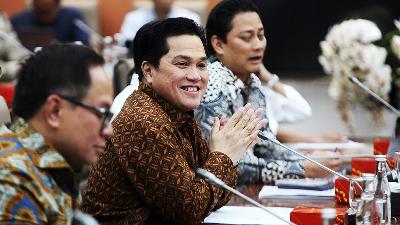
State-Owned Enterprises Minister Erick Thohir shares his perspectives on Danantara and the new SOEs Law.
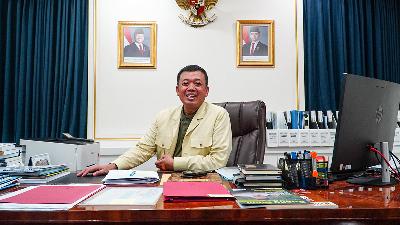
Agrarian Affairs and Spatial Planning Minister Nusron Wahid explains the polemic surrounding the sea barriers and the land certificates for the north coastal areas in the Tangerang Regency.

Gerindra Party Executive Chair Sufmi Dasco Ahmad responds to the negative assessment of the first 100 days of the Prabowo-Gibran administration in a special interview with Tempo.

Deputy Foreign Minister Arif Havas Oegroseno talks about the foreign policy of President Prabowo Subianto’s government.
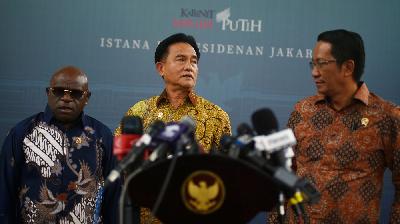
Minister Yusril Ihza Mahendra confirms that pardoning corruptors is not recognized in the Indonesian legal system. His ministry is still using the old budget.

Social Affairs Minister Saifullah Yusuf explains social assistance as a pillar of public satisfaction in the first 100 days of Prabowo’s cabinet.

Universities must reject the plan to share out mining permits in order to maintain their institutional independence.
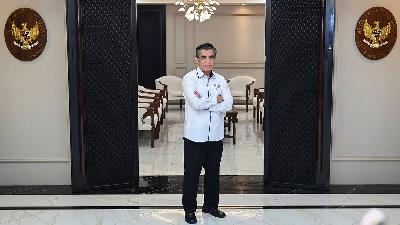
Manpower Minister Yassierli explains the projections for the labor sector in 2025 and the decision to increase the minimum wage.
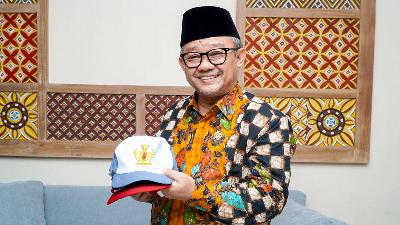
Primary and Secondary Education Minister Abdul Mu’ti on the school zoning system as well as the importance of evaluating the learning system.
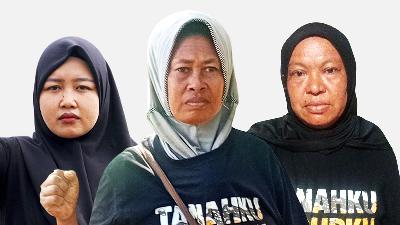
Women in various villages are fighting against mining and nickel downstreaming. Some have been criminalized while others have suffered losses.
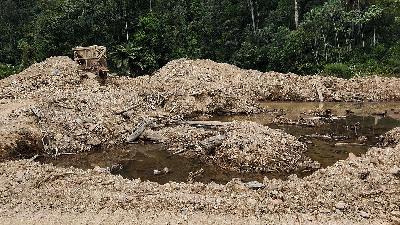
Illegal mining exacerbates the critical condition of the upstream Batanghari River Basin Area (DAS). The fraudulent practices involve many actors.

Housing and Settlement Minister Maruarar Sirait on the three million homes project, and his relationships with Jokowi and Prabowo.
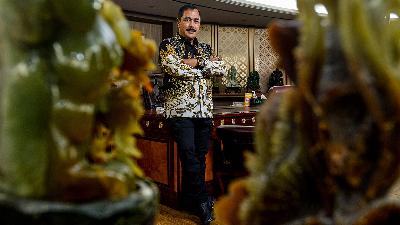
Immigration and Penitentiary Affairs Minister Agus Andrianto on the issues ranging from the inmate escapes from Salemba Detention Center to Mary Jane’s repatriation.
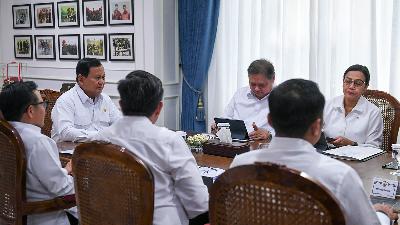
The government finally set the average minimum wage increase at 6.5 percent, following a tug-of-war over the calculation formula after the Constitutional Court annulled the labor cluster in the Job Creation Law.

The government repeatedly revised the formula for calculating minimum wage. Policy changes create uncertainty.

Minister Amran Sulaiman recommends changes to regulations on food sector institutions, citing self-sufficiency as the primary reason.

The number of people suspected of protecting online gambling sites increases to 18. Employees of the Communication and Digital Affairs Ministry are involved.

The Communication and Digital Affairs Ministry is tidying up house now that 10 of its employees are accused of participating in online gambling. Their flow of cash is being scrutinized.

One of the suspects of the online gambling case is a regular in the ministers’ social circles, and active in the arts scene.

Minister of Higher Education, Science and Technology Satryo Soemantri Brodjonegoro explains BRIN’s position in the Prabowo government.
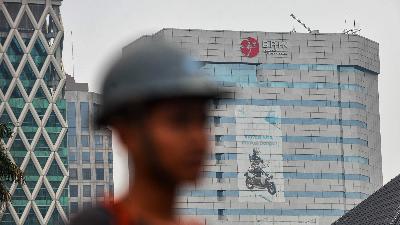
The position of BRIN remains uncertain under Prabowo Subianto’s administration. The restructuring of the research agency is hampered by political interests.

Danantara will reduce the authority of the SOEs Minister. Transferring the management of major SOEs will make the Ministry almost powerless.

Interviews with Industry Minister Agus Gumiwang Kartasasmita and Sritex President Commissioner Iwan Setiawan Lukminto on the company’s bailout.
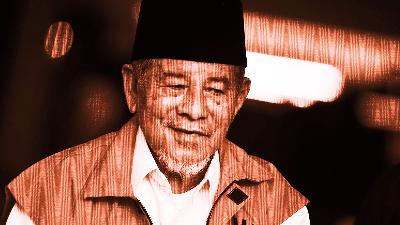
The term “Medan Block” emerged during the trial of former North Maluku Governor, Abdul Gani Kasuba. Medan Block is believed to refer to pre-allocated nickel mining concessions in Halmahera.
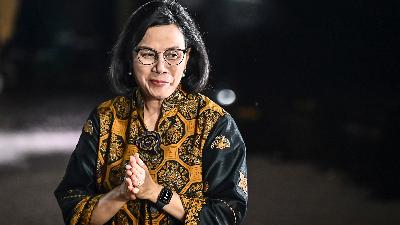
Sri Mulyani and several economic ministers from Jokowi join Prabowo’s cabinet, with encouragement from two former presidents.

Indonesia’s delegation at COP16 CBD in Cali, Colombia, is not led by a minister. Biodiversity funding is at risk of not being agreed upon.

A number of policies from Minister Sakti Wahyu Trenggono are riddled with conflicts of interest. They benefit his son, Indra Trenggono.

Explanations from State Secretary Minister Pratikno and Maritime Affairs and Fisheries Ministry on fishery business and the case of illegal ships in eastern Indonesia.

Minister Sakti Wahyu Trenggono revives a shutdown port. There is indication that the minister’s son is involved in the fisheries business.

Tempo’s interview with Minister of Communication and Informatics Budi Arie Setiadi about Jokowi’s campaign before the end of his tenure.
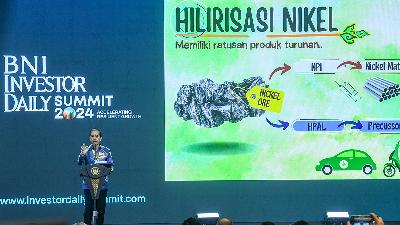
Jokowi’s campaign promoting his successes is considered as not portraying actual conditions. Customary communities are among the victims of his administration.

Trade Minister Zulkifli Hasan on the issues ranging from sea sand export policy to Prabowo Subianto’s bureaucratic management style.

There is a strong aroma of politics around the appointment of Saifullah Yusuf as Minister for Social Affairs. President Jokowi should focus on dealing with the problems of poverty.
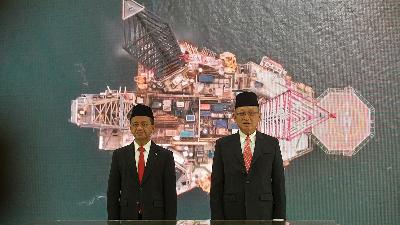
Just months before the end of his term, Jokowi appointed Bahlil Lahadalia as Energy and Mineral Resources Minister. The position is considered prone to conflicts of interest.
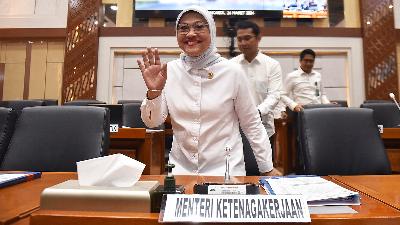
Minister of Manpower Ida Fauziyah explains the issues surrounding the mass layoffs in the industrial sector.

The willingness on the part of Muhammadiyah and Nahdlatul Ulama to accept mining concessions will turn into a problem. This is prone to corruption and could lead to horizontal conflicts.
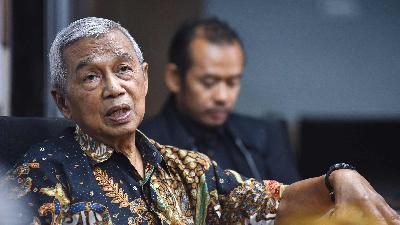
Muhammadiyah accepts the government’s mining concession offer. Many members are against it. Busyro Muqoddas, Chair of Muhammadiyah’s Law and Human Rights Council explains.

Muhammadiyah cadres and administrators are divided in their response to the mining concession. There are whispers from the government and the entrepreneurs.
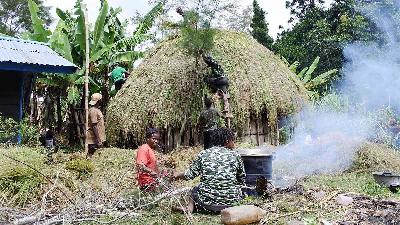
The Papua conflict continues to rage during Jokowi’s administration. The fate of the refugees is neglected.
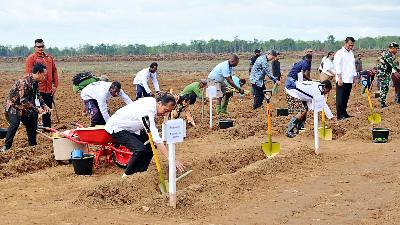
In a decade of Jokowi’s administration, deforestation reached 4.37 million hectares. This is partly attributed to national strategic projects in the food and energy sectors.

The DPR and the Religious Affairs Minister disagree regarding an additional quota of haj pilgrims. The DPR deems Yaqut Cholil Qoumas has broken the law.

The Ministry of Education clarified the matter of the network of professor assessment teams. It is suspected that journals were engineered in addition to suspicious transactions.
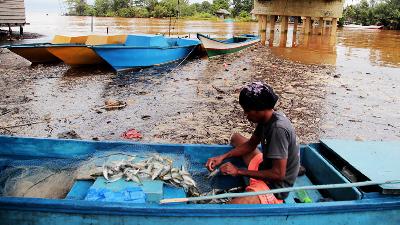
Indigenous people and villagers in Central Halmahera are facing clean water crisis. Community wells and river water are contaminated by nickel mining.

Communication and Informatics Minister Budi Arie explains the cyberattack on the Temporary National Data Center. He dismisses allegations of negligence.

Infinite Earth responds regarding the revocation of Rimba Raya Conservation’s ecosystem restoration permit.

The government grants mining concessions to religious organizations. What are the considerations behind the policy?
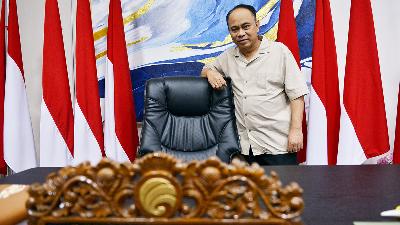
Communication and Informatics Minister Budi Arie Setiadi talks about the polemic over the planned revision of the Broadcasting Law and the Starlink Internet service.
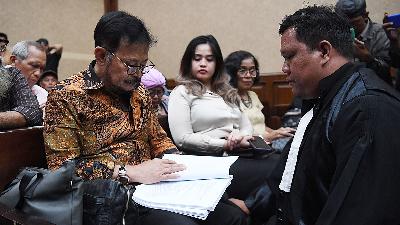
Agriculture Ministry high-ranking officials routinely took up collections to raise money for Syahrul Yasin Limpo from 2020 to 2023. They often used the treasurer’s cash account.

Prabowo Subianto intends to form a cabinet of 40 ministers. This will result in a bloated bureaucracy and wasted public money.

Illegal tin mining is rampant in the waters of Bangka Belitung. The environmental damage is much greater than investigators estimated.

An interview with Coordinating Minister for Maritime Affairs and Investment Luhut Pandjaitan on mining permits for mass organizations and his relationship with Bahlil Lahadalia.
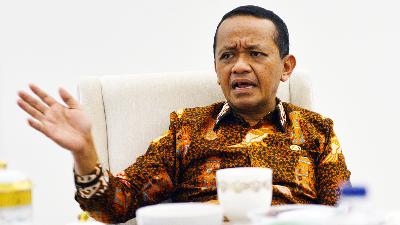
Interview with Minister of Investment Bahlil Lahadalia about mining business permits IUP for mass organizations, and the debate with Luhut Pandjaitan.
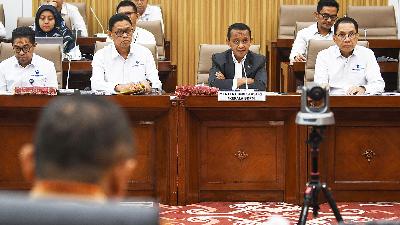
The role of Bahlil Lahadalia in revoking mining business licenses draws attention of the House of Representatives and civil society groups, amidst concerns of possible licensing corruption.
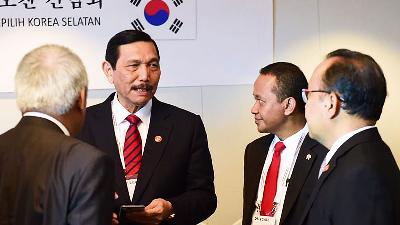
Luhut Pandjaitan and Bahlil Lahadalia discussed the allocation of mining permits. For the sake of delivering Jokowi’s promise.

The legalization of illegal mining and oil palm plantations in forest areas is rife with irregularities. This is plundering of natural resources using the Job Creation Law.
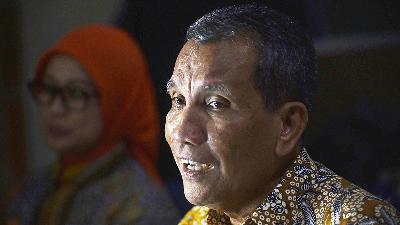
Corruption Eradication Commission’s Deputy for Prevention, Pahala Nainggolan, on the mechanism of administrative sanctions for companies mining illegally in forest areas.
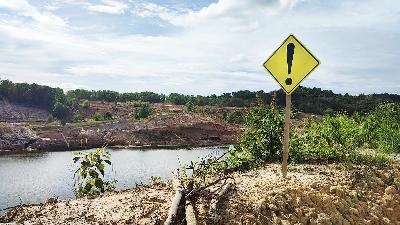
Administrative fines for whitewashing illegal mining are deemed ineffective to battle environmental damage. The fines are also vulnerable to corruption.

Bahlil Lahadalia explains the uproar over the revocation of mining permits as well as alleged extortion of money and shares in exchange for reinstatement of the permits.
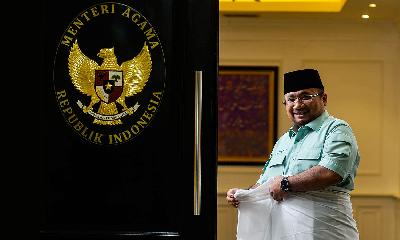
Religious Affairs Minister Yaqut Cholil Qoumas explains the regulation regarding the use of loudspeakers in mosques and outlines plans to ensure that religious affairs offices provide services for all faiths.

The declining trade surplus is the culprit of the rupiah’s weakening recently. Partly, it is the fruit of the government’s own doing.

The Attorney General's Office is investigating alleged corruption over tin mining permits in Bangka Belitung. The investigation must also reveal the backers.

Three Timah directors become suspects in a tin mining corruption case in the Bangka Belitung Islands. Estimated losses sustained by the state amount to Rp217 trillion.

Investment Minister Bahlil Lahadalia has revoked mining permits and then reissued them. There are indications of illegal buying and selling of permits.

Deforestation and illegal nickel mining continues in Halmahera. It became widespread after Minister Bahlil revoked some mining licenses.

Allegedly, there are tributes to Investment Minister Bahlil Lahadalia. This coverage is supported by International Media Support
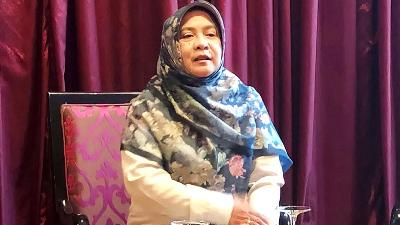
An interview with the Ministry of Environment and Forestry’s Director-General of Climate Change Mitigation Laksmi Dhewanti about the REDD+ program.
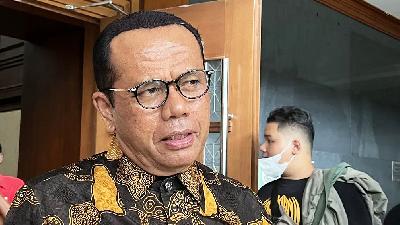
An interview with Juniver Girsang, the lawyer of Fajar Bhakti Lintas Nusantara directors, on the role of the Coordinating Minister for Maritime Affairs and Investment Luhut Pandjaitan in the internal dispute of a nickel company.

Ministry of Religious Affairs and Ministry of Agriculture’s right of reply on support for presidential candidates.

What are the functions of the cabinet minister’s special staff?
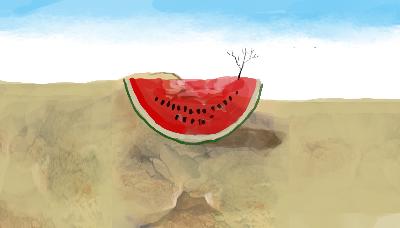
The Palestinian homeland neither originates from the distant past, nor is it a hope for the future.

A number of President Joko Widodo’s ministers campaign for their respective political parties ahead of the 2024 elections. How to scrutinize a possible misuse of state facilities?
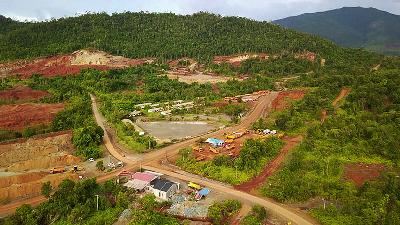
Helmut Hermawan, who admitted to bribing Deputy Justice and Human Rights Minister Eddy Hiariej, is indicted in 11 criminal cases. It is the fallout from fighting over company stocks.

The water of the Sagea River in North Maluku is polluted by nickel mining. The environmental danger is becoming more real as the price of nickel on world markets plummets.
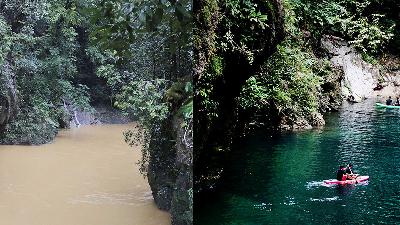
Sagea River is polluted as a result of deforestation by a number of nickel mining companies. Its water is no longer safe for drinking.

Syahrul Yasin Limpo is the sixth of Jokowi's ministers to be caught up in a corruption case. This is a sign of failure in the recruitment of cabinet members.

The appointment of the Environment Ministry Director-General of Planning appears to have been made based on a forged signature. His track record is also controversial.
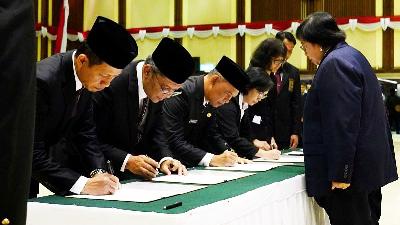
The signature of Sarwono Kusumaatmadja was used to validate the names of candidates for echelon-I officials of the Environment and Forestry Ministry. The announcement letter was issued when he was hospitalized in Malaysia.

Former government employees at the Foreign Affairs Ministry are demanding the disbursement of unpaid wages. How did it come to happen?

The National Genome Center set up in 2018 is gone. Does it change into the Biomedical and Genome Science Initiative of the Health Ministry?
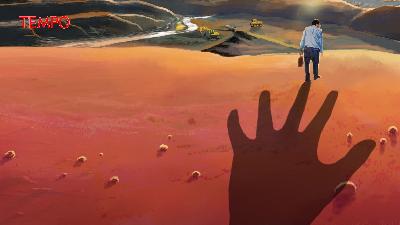
A former campaign volunteer for President Jokowi is named a suspect in relation to an illegal nickel mining worth Rp5.7 trillion. A crooked syndicate that must be investigated.

Businessman Windu Aji Sutanto is caught up in a case of illegal nickel mining at the Mandiodo Block. He is known as a broker for arranging the outcomes of legal cases.

The mining downstreaming policy gives rise to issues. Mineral processing has not been optimal without processed materials being absorbed by manufacturing industries.

Minister Mahfud Md’s statement regarding a loan claim by Jusuf Hamka could be considered influence peddling. This is treading on very thin ice.
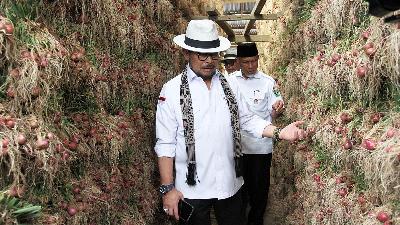
Through people close to him, Agriculture Minister Syahrul Yasin Limpo allegedly received tributes to fund his personal needs.
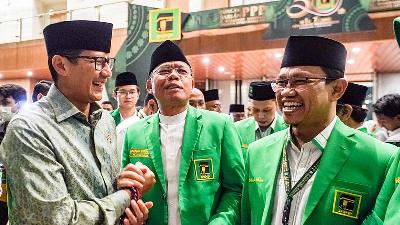
Sandiaga Uno and Erick Thohir are cozying up to political parties. Even opposition parties have been lobbied to support the current administration.

Small islands face the threat of disappearing under the water as a result of the sand mining. This worsens the abrasion caused by rising sea levels.
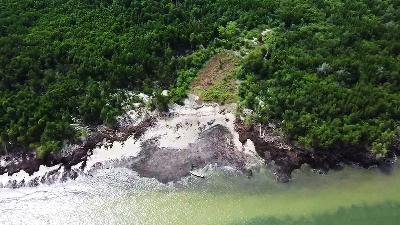
Sand mining exacerbates threats for smaller islands. It creates environmental damage and less catch for fishermen.

Police seized a Lamborghini Aventador with a fake license plate from a Russian tourist. The car disappeared twice.
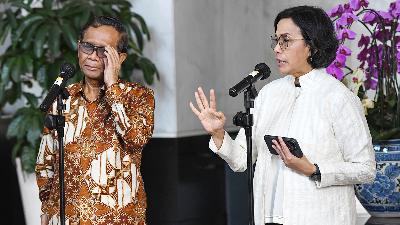
A summary of the week’s news on the huge transactions discovered in the finance ministry, the transfer of the Haris-Fatia case to the prosecutor's office, and the verdict received by the Kanjuruhan Tragedy defendants.

An investigation by Tempo found illegal nickel mining by people claiming to be close to the authority.
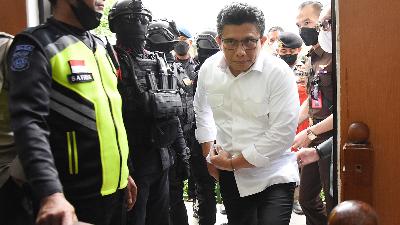
Ferdy Sambo, who is currently facing trial in the case of the killing of his adjutant, is suspected to be connected to an illegal mining bribery case involving Ismail Bolong.

Discussions to decide the provincial minimum wage for 2023 get hot. Workers are lobbying the president to issue a discretion, while employers are suing manpower minister regulation.

Minister Erick Thohir promises to ban former corruptors from becoming directors of state-owned enterprises. Mere gimmicks are inadequate for a comprehensive cleanup of state-owned enterprises.

Nadiem Makarim has outside teams attached to some directorate-general offices at the Ministry of Education, Culture, Research and Technology. Consisting of about 400 people, these shadow organizations create waves inside the ministry.
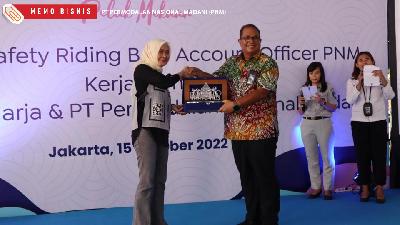
PT PNM put 100 Jakarta Branch Account Officers as training participants so they can be more aware and obey the traffic rules. #Infotempo

Barring the entry of five foreign researchers underlines the anti-science and anti-criticism stance of Environment and Forestry Minister Siti Nurbaya. This is a danger for the environment.

His experience in the theater makes Jeremias Nyangoen mature in dealing with acting. This leads him to be Tempo’s Best Director.

A letter about the wayang philosophy.

Sanggar Taruna Krida Rasa teaches Malang’s children and teenagers the art of puppeteering. The studio hopes to preserve wayang theater.

The Sang Hyang Seri company was reported to have been responsible for a program to create paddy fields in Ketapang, West Kalimantan. But out of a targeted 100,000 hectares, only 100 hectares were cultivated. "Why was it reported as fictitious? We always submitted an accountability report," said Ahmad Yani, chief of Sang Hyang Seri's internal security unit, speaking to Tempo reporters Gustidha Budiartie and Ayu Prima Sandi at his office last Thursday.

Wayang Potehi of Java
By Ardian Purwoseputro
Publisher: Afterhours Books 2014
ISBN 978-602-97507-9-9
The fitting name for Indonesian-born Chinesethe country's significant and largest ethnic minorityis peranakan (children of the Indies), a group that has evolved their own customs, law, dialect, cuisine and performing arts, all of which have become not just the heritage of the country's Chinese citizens but that of every Indonesian.
Among the most beloved cultural icons that Chinese-Indonesians have given to the country is potehi, a unique form of puppet theater featuring puppets-in-the-round. This ancient traditional theater form, which epitomize Chinese culture, is based on ancient myths and legends. Thanks to the exposure given now to this artistic legacy, Wayang Potehi is one of the best examples of Indonesia's interfaith harmony and cultural diversity.

Home industries in Mayangan are producing car and motorcycle spare parts for both local and export markets. Government support is needed to help them expand.

Bulog is suspected of handing over imported buffalo meat distribution to Suri Nusantara Jaya. The agriculture ministry took action to block the monopoly.

The National Zakat Agency (Baznas) encourages digital transformation as a strategy to strengthen the performance of alms management. However, Baznas CEO Mohamad Arifin Purwakananta views that the digitalization that has been seriously developed since 2016 has not really been evenly distributed.
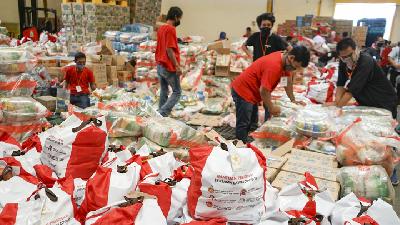
The central and regional governments have begun distributing social aid for those impacted by the Covid-19 pandemic. But the disordered database of recipients has resulted in improper aid distribution. Losses may be suffered by the state.
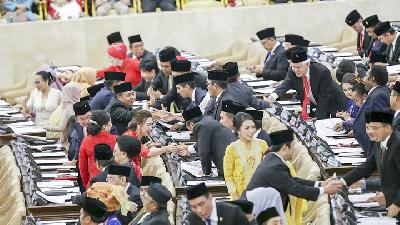
THE House of Representatives (DPR) has finished designating leaders of its agencies for the period of 2019-2024. The decision on the leadership distribution was made at a plenary meeting of the DPR on Tuesday, October 22.
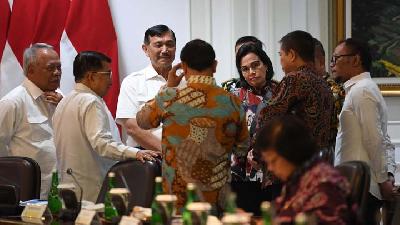
PRESIDENT Joko Widodo will be restructuring his cabinet. A number of ministries will be merged with other ministries, adopting new names. New ministries and institutions will also be formed. The President will be appointing deputy ministers for a number of ministries whose work areas cover a wide scope or ministries with big budgets.
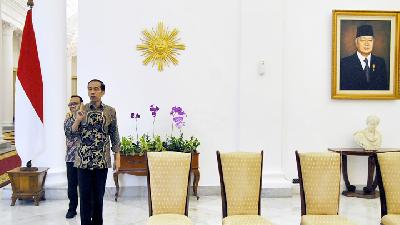
President Joko Widodo will be restructuring the cabinet in his second term in office. Some ministries will be merged, others are disbanded while new ones are formed. A young person will be appointed as minister of digital economy.
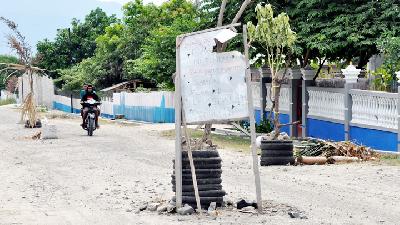
THE House of Representatives (DPR) Budget Committee and the finance ministry approved a subdistrict budget allocation at a meeting held.

Oegenetan villagers may owe its well-being to the initiative of the Iniyandit District Chief, Yan Karowa. The 46-year-old man grew up in Serui and earned his teacher's degree at Cendrawasih University in Jayapura. He served as a teacher before moving to Iniyandit in 1996 and was appointed as the district's secretary.
As a civil servant, Yan had to travel to villages to collect data. He said that he had to go through muddy dirt roads to get to most of the villages in Papua. Once there, he would visit families in their homes. "That's when the people would tell me about their problems," he said. He then tried to ease the poverty in Oenegetan village, one of the poorest in his area, by establishing the Nonggup Cooperative. Last month Tempo English reporter Amanda Siddharta interviewed Yan in Tanah Merah, capital of Boven Digoel regency, two hours away from Iniyandit. Excerpts:

The Madiun regency government has shut down the Gude red-light district. The local government declared the shutdown complete last week. "There is a Rp3 million compensation for every Gude sex worker," Madiun public relations officer Heri Supramono said.
Not only the sex workers but dozens of pimps, parking attendants, motorcycle-taxi drivers, food sellers and laundry men who earned a living in the red-light district are also slated to receive Rp2-3 million in aid money. In addition to financial assistance, they received 10 days of skills training. Based on the latest data, there were 80 sex workers at Gude. There were 32 pimps. Fifty-six other people also depended on the red-light district, which has been in operation since the 1980s. The following are the details running up to the shutdown.

President Joko Widodo's merging of the environment and forestry ministries has received mixed reviews.
Walhi and Greenpeace oppose the move. Leaders from both non-governmental organization argue that the Environment Ministry should be kept independent and strengthened so as to better oversee the Forestry Ministry, rather then combined with one of Indonesia's most corrupt institutions.

The national film industry lacks players in the distribution sector. Producers must often double as marketers.

There is strong suspicion that fertilizer subsidies valued at trillions of rupiah have long been misused. The Regional Information and Analysis Center found violations in seven out of 10 towns studied last year. Consequently, poor farmers may not have benefitted by the prices of fertilizers as determined by the governmentvictims of a fertilizer distribution system lacking transparency and difficult to access.The head of the Model Farmers and Fishermen's Association Winarno Tohir and Gunaryo, director-general of Domestic Trade at the Trade Ministry, exposed the chaotic distribution of rice fertilizers to Tempo reporters Akbar Tri Kurniawan, Eka Utami Aprilia and Y. Tomy Aryanto.

Head of Simalungun District Court, Binsar Gultom, launches a number of innovative measures, from creating court transparency to establishing an online network between the AGO and police.

A number of ministries have announced they will follow the example of the Ministry of Foreign Affairs and undergo restructuring. Is this an effort to distribute the locus of decision-making?
Independent journalism needs public support. By subscribing to Tempo, you will contribute to our ongoing efforts to produce accurate, in-depth and reliable information. We believe that you and everyone else can make all the right decisions if you receive correct and complete information. For this reason, since its establishment on March 6, 1971, Tempo has been and will always be committed to hard-hitting investigative journalism. For the public and the Republic.